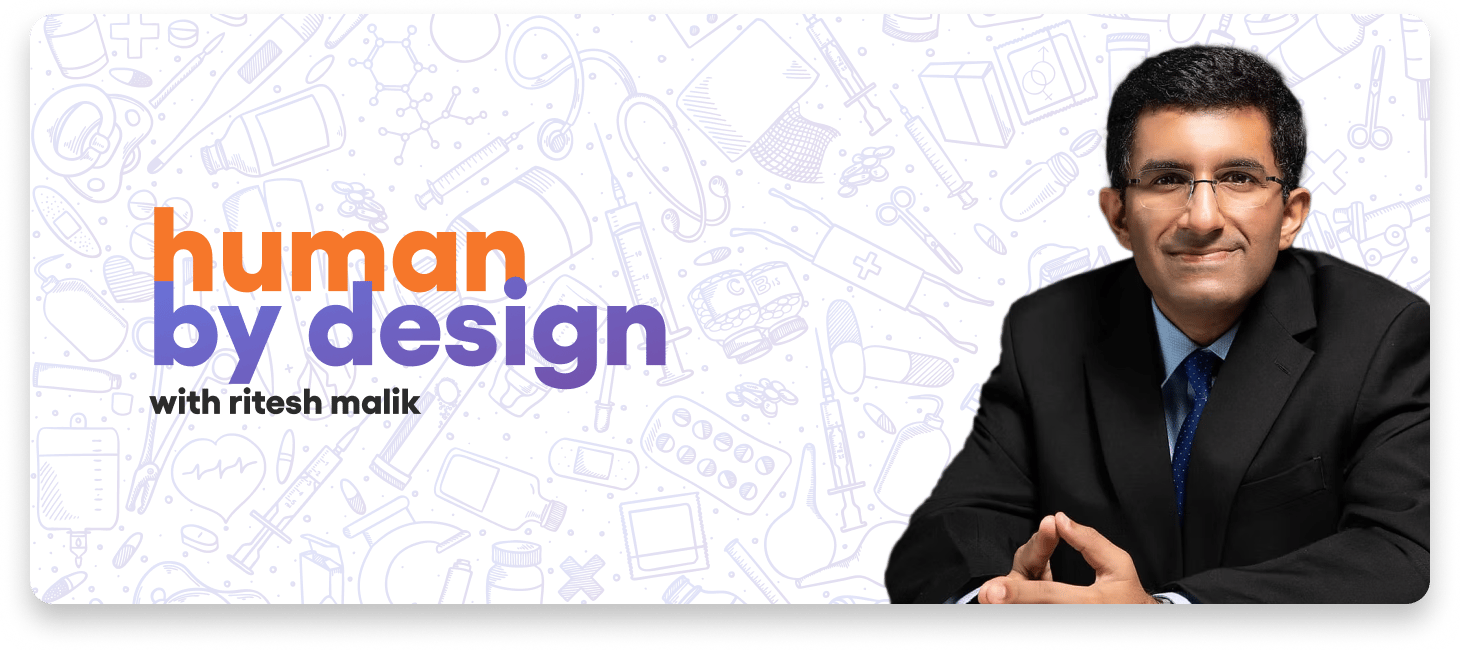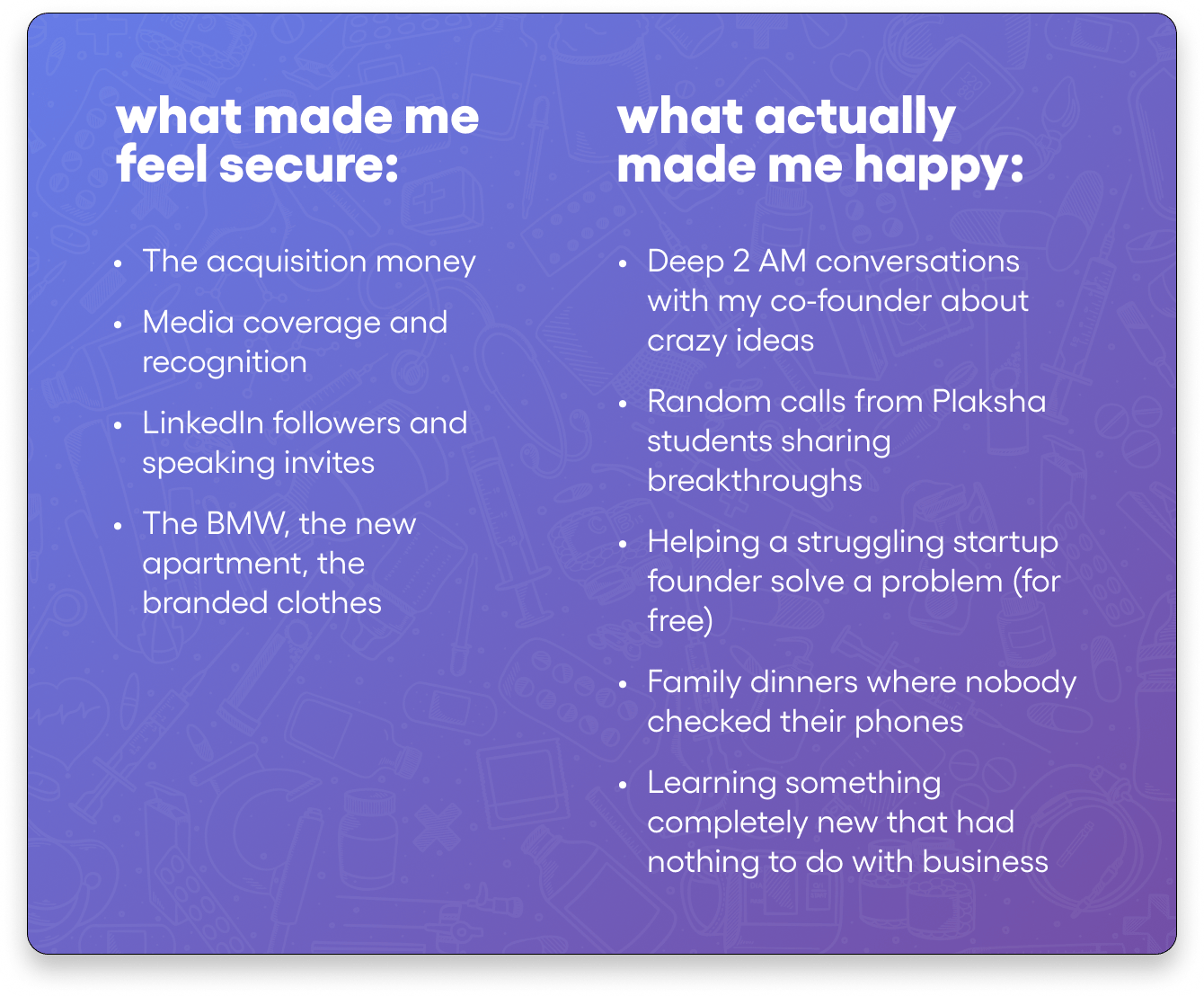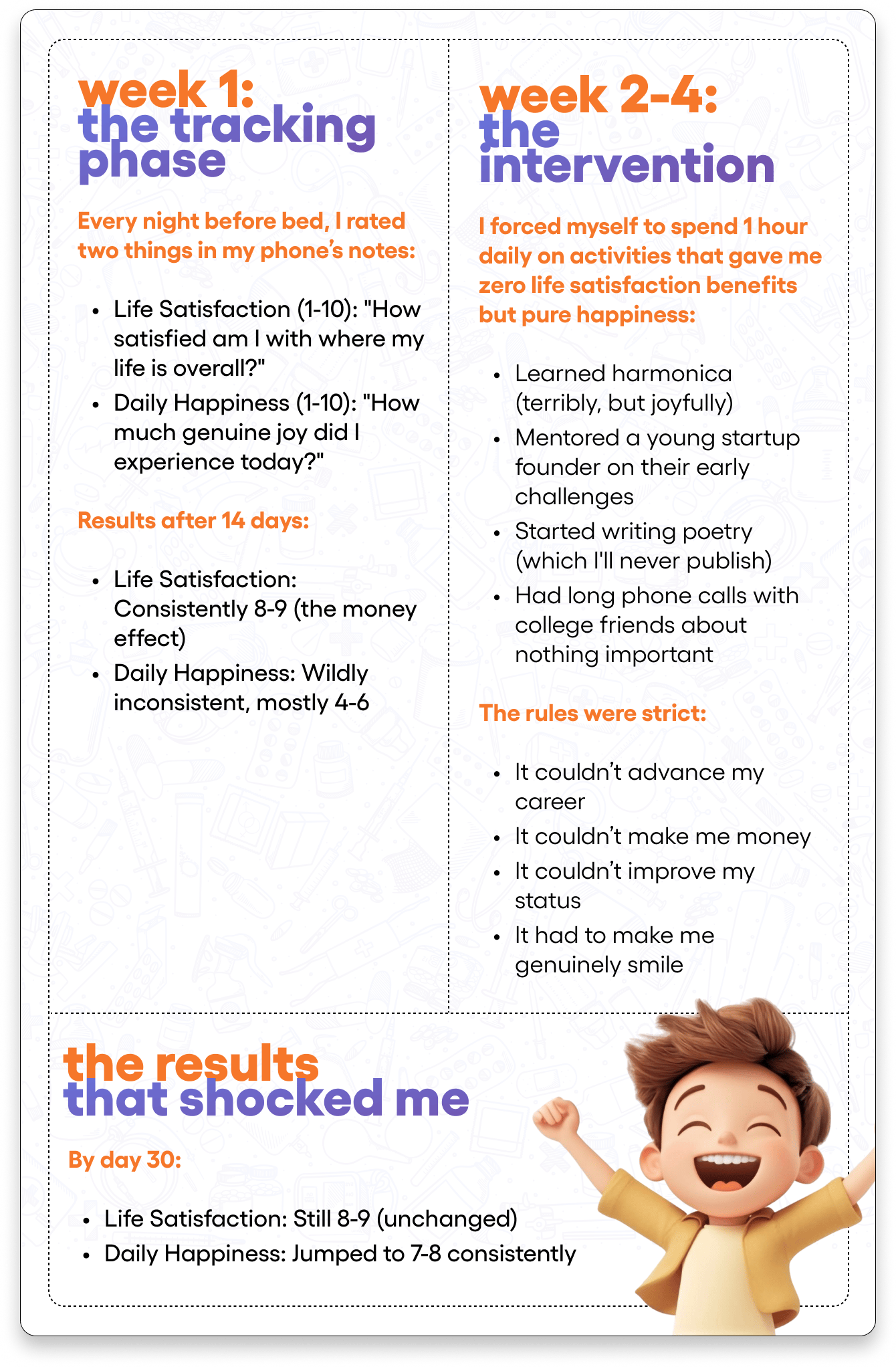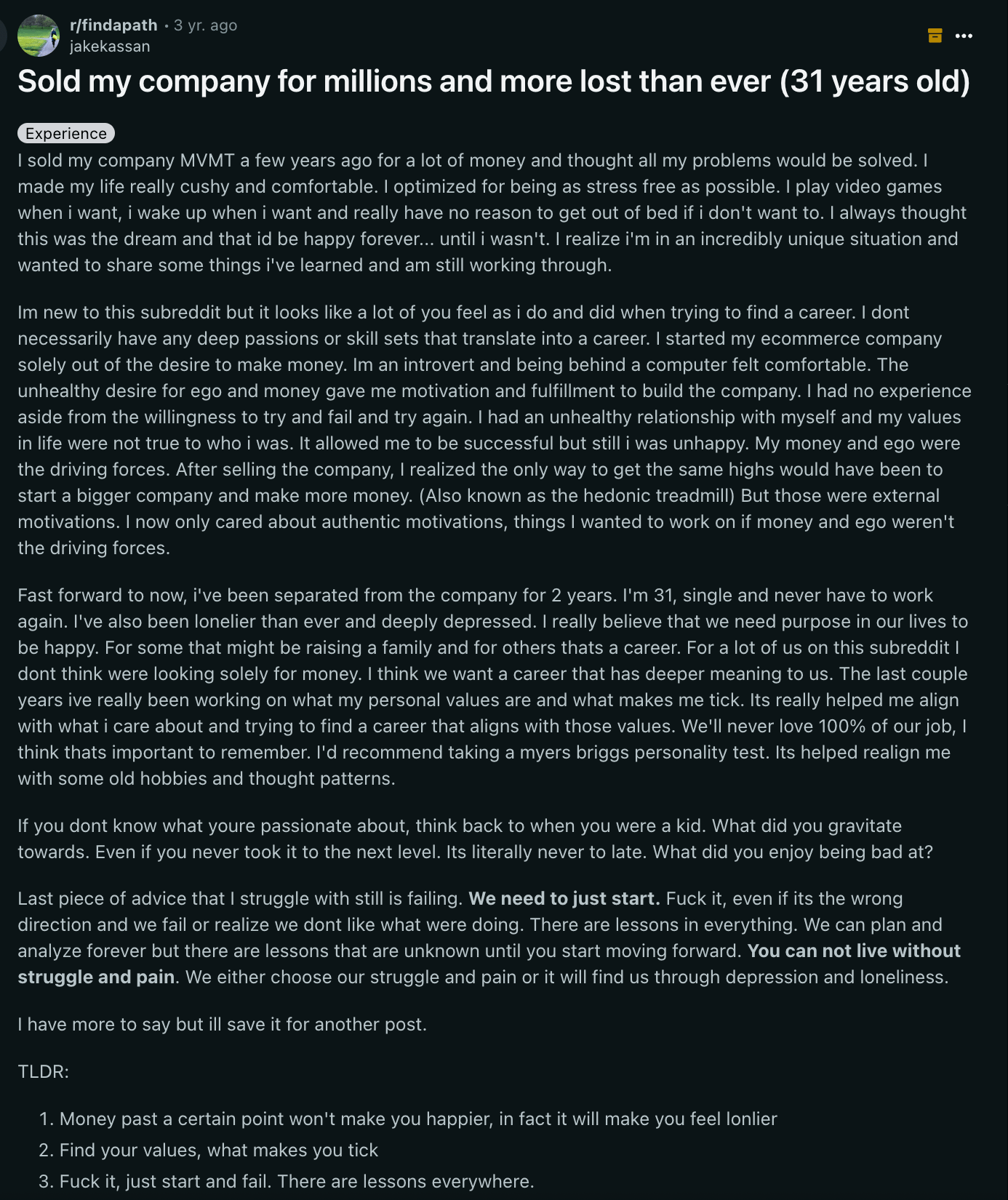- Ritesh Malik
- Posts
- sad with $100 Mn in bank
sad with $100 Mn in bank

"Call me naive, but I thought money would solve all my problems."
Jake Kassan's YouTube video went viral sometime back. 550,000+ views in weeks. Comments calling it "inspiring" and "genuine."
Here’s the story he posted on Reddit for all of you who don’t know him:
His video and post weren’t about success.
It was about emptiness.
At 27, Jake sold MVMT Watches for $100 million.
Everything he'd dreamed of since dropping out of college at 21.
Financial freedom. Validation. The American Dream achieved.
"I finally climbed to the top of my mountain," he said, "but I didn't find what I was looking for."
Instead of happiness, he found anxiety.
Panic attacks in hotel rooms. A complete loss of purpose and identity.
"How do you empathize with someone who is rich and depressed?" he asked in the video.
"I can't buy more peace of mind," he admitted.
Jake's story made me think: What if this isn't rare? What if this is normal?
If you won ₹10 crores in a lottery tomorrow, how would you honestly feel in 6 months? |
Hold that thought. Because what I discovered about this question changed everything I believed about success.
That hit me like a punch to the gut. Because six years ago, right after Innov8's acquisition, I felt exactly the same way.

March 15, 2019. The acquisition papers were signed. My phone was buzzing with congratulations. LinkedIn was exploding. The financial stress that had kept me awake for years was finally over.
I should have been the happiest person.
Instead, I felt... empty.
The first week was euphoric. By month three, I was googling "why do I feel depressed after achieving my goal?"
Turns out, I wasn't alone.
Swedish researchers tracked 3,362 lottery winners for over a decade and found something that breaks our understanding of money and happiness. These winners reported feeling more secure, less stressed about the future, and they said they had higher “life satisfaction”
But…they weren't actually happier. Same morning grumpiness. Same traffic frustration. Same relationship issues.
Money solved their security problems, but not the happiness index.
But this is where it gets really weird…
When Jensen Huang, CEO of Nvidia, was asked if he’d go back 30 years to build another company. His answer was instant: “I would not.”
This man, worth $90+ billion and leading a company that powers the AI revolution, wouldn't relive the journey. Money solved life satisfaction issues but didn’t make him happier.
Not adding up, right?
That’s when I started digging deeper.

In 1974, Richard Easterlin asked a dangerous question.
He looked at 30 surveys across 19 countries over 25 years.
During this period, America's income more than tripled. People went from basic survival to having cars, houses, vacations their grandparents could never imagine.
Logic says they should be much happier, right?
Wrong.
The percentage of Americans saying they were "very happy" stayed exactly the same.
Easterlin had discovered something that shattered economics: After a certain level of income, the more money you make, does not make you happier. The happiness stagnates or even reduces.

But here's the part that kept me awake: Our brains are actually designed to do this to us.

There’s something called the hedonic treadmill: the reason your last salary hike stopped exciting you after three months.
Remember your first phone purchase? The excitement lasted maybe a week before it became normal.
Same with money. That salary hike gives you a high for a few months, and then becomes your new baseline.
Brain imaging studies show we adapt to positive changes within 1-2 years. We literally get used to good things so fast they stop making us happy.

It's evolutionary. Our ancestors who got comfortable after one good hunt didn't survive. So our brains are wired to always want more.
According to Maslow’s hierarchy of needs, we have five categories: physiological, safety, love, esteem, and self-actualization.
The theory tells us that as individuals progress through these needs, they experience a greater sense of fulfillment and motivation.

Money unfortunately satisfies only two, on the bottom of the pyramid. The rest of them cannot be bought by money.
Kahneman and Deaton’s research found that day-to-day happiness rose as annual income increased, but above $75,000 it leveled off and happiness plateaued and did not improve emotional well-being.
Dr Diener (also called Dr. Happiness) sums up the results from his twenty-five years of research on happiness to say psychological wealth is more important than money.
He also quotes a study that said teenagers from blue-collar families were happier than teenagers from rich families.
That establishes one thing for sure. Happiness is not just a function of money. Even if you win a lottery.

This made me question, how are we as Indians?
We’re the 4th largest economy in the world.
But we rank 118th in global happiness.
We're less happy than Nepal(92nd), and even Pakistan(109th).

But there's a tiny country that did something radical.
In 1972, Bhutan's king said "Gross National Happiness is more important than Gross Domestic Product."
They measure progress across four pillars: good governance, sustainable development, cultural preservation, and environmental conservation.
Every government project must pass a happiness assessment.
If it doesn't benefit wellbeing, it doesn't get built.
Result? Despite much lower income, Bhutan's citizens report higher life satisfaction than most developed nations.
They chose to optimize for the right scorecard.
the WhatsApp message that changed my perspective
I got a WhatsApp forward on our family group. It was a quote from an acharyaji:
"Artha se security milti hai, dharma se sukh milta hai. Dono chahiye, lekin dharma zyada zaroori hai."
(Wealth gives security, purpose gives joy. You need both, but purpose matters more.)
At first, I laughed it off. But I couldn’t stop thinking about it.
But then while writing this, I stumbled upon Harvard research that shows people with daily gratitude practices live 9% longer and report significantly higher life satisfaction.
The minimum dose?
Just 15 minutes daily, focusing on what you're grateful for.
So I tried to journal on this:

Security was external. Happiness was internal.
the experiment
I decided to run a 30-day experiment on myself.

The “useless” activities started spilling over into my work. The harmonica breaks made me more creative in meetings. Talking to young founders reminded me why I loved building products. Writing poetry improved my communication.
Recent neuroscience research shows that when we engage in intrinsically motivated activities (things we do for pure joy), our brains release different chemicals than when we chase external rewards.
External motivation (money, status): Dopamine spike followed by rapid decline
Internal motivation (purpose, joy): Sustained serotonin and oxytocin release
That’s why your salary raise feels great for a few weeks, then becomes normal. But helping someone, creating something, or mastering a skill for fun gives you a different high that compounds over time.

Two weeks ago, Jake made another video. This one was different.
He moved to a whole different country to find purpose.
His journey reveals something profound about the human condition:
Money can solve your problems. It can't make your Tuesday morning beautiful.
That's your job.
Today, Plaksha University brings me more joy than any financial milestone ever did because of the collective purpose we’re trying to work towards.
Jake discovered the same thing. The acquisition gave him security. Building something meaningful again gave him happiness.
You already have enough life satisfaction. What you're missing is daily joy.
And that's completely within your control.
Hit reply and tell me what makes you genuinely happy, not what looks good on LinkedIn, but what actually lights you up inside. I read every email.
Until next week,
Ritesh
P.S. - The best gift you can give an ambitious friend is perspective. Forward this to someone chasing the wrong scorecard.

